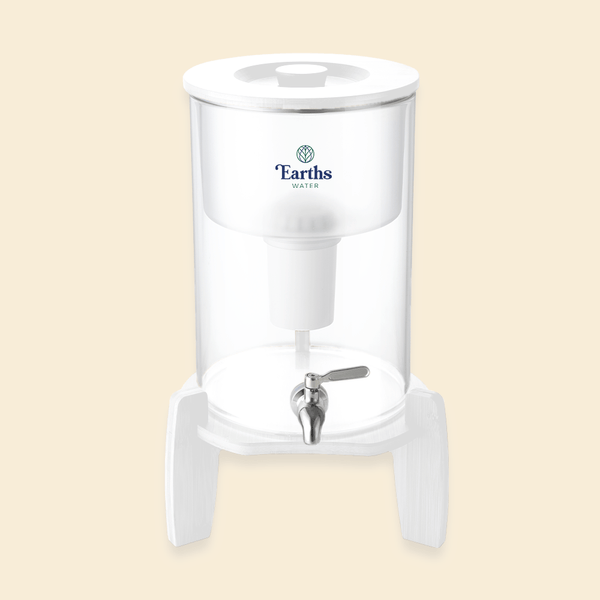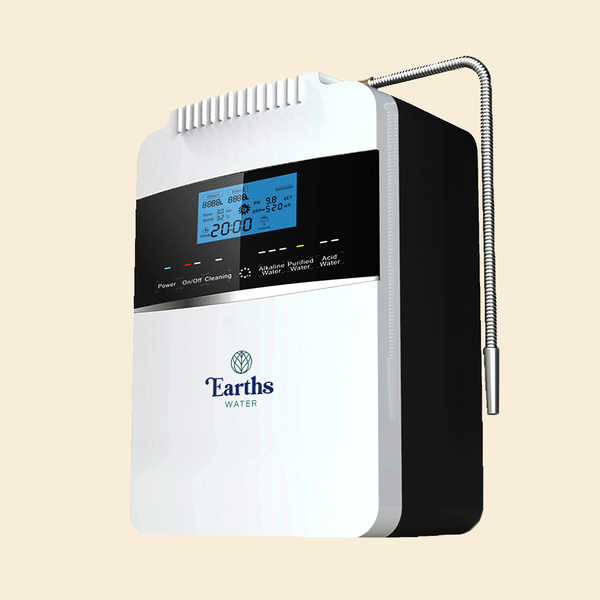While most glass products around the world are made up of the same three components - soda ash, silica, and lime, not all of them are created equally. When even the slightest proportions are varied, you’ll get completely different variations of glass suitable for different purposes.
However, before we dive deeper into the uses and benefits of using borosilicate glass, we need to understand how it works first.
What is borosilicate glass and how is it made?
At its core, glass is liquid sand melted in high heat and then poured into moulds to shape. These shapes can range from drinking glasses, bottles, and also windows.
Adding additional elements to the original glass mixture alters its properties, and in the case of borosilicate glass, a special material is added to make it the “superhero” of glass.
Borosilicate glass is an exceptional type of glass that contains 15% boron trioxide as a special material, allowing for an extremely low coefficient of thermal expansion. This means that, unlike conventional glass, it will not break during drastic temperature changes.
Due to its notable toughness, it is the glass of choice for high quality consumer products.
What is borosilicate glass used for?
-
Water containers
Borosilicate glass is durable enough to stand against plastic and soda-lime glass. In addition, its chemical components don’t leach into its liquid contents, maintaining the pristine taste of your drinking water.
-
Cookware and bakeware
Since materials used for cooking and baking are highly likely to be exposed to extreme heat (from the oven) and extreme cold (from the refrigerator) temperatures, the low thermal expansion of borosilicate glass allows it to be seamlessly transferred from several kitchen appliances at once.
-
High-intensity lighting products
With artificial light comes heat, and due to the ability of borosilicate glass to tolerate high temperatures, this makes it the ideal material for glass membranes and receptacles used in high-intensity lighting systems.
-
Industrial applications
From panelling for consoles to viewing machinery, many industrial manufacturers prefer borosilicate glass over soda-lime glass due to its strength.
-
Research and chemistry laboratories
Due to its ability to resist extreme cases of acidic and heat-related reactions, borosilicate glass is also a favourite in many laboratories.
-
Sight glass
Because of its low coefficient of thermal expansion, borosilicate glass is capable of maintaining identical optical properties even at varying temperatures. This makes it ideal for high-precision optical components such as hot mirrors and scientific lenses.
-
Thermal insulation
Compared to soda-lime glass, borosilicate glass works better in higher temperatures, making it the perfect glass of choice in hotter and drier environments.
What are the benefits of borosilicate glass?
-
Inert behaviour
There is no catalytic effect since the process media and glass do not interact or exchange ions. As a result of its inertness, borosilicate glass is nonflammable, safe for the environment, and doesn’t alter the smell or taste of the food or element that interacts with it. This makes borosilicate glass perfect for the food and beverage industry.
-
Exceptional transparency
Glass has a smooth surface that offers an unhindered view of what is happening beyond the material, improving the level of observation in any process. This is as opposed to the variety of plastics, metals, and other alternative coating materials.
-
Can withstand changes in temperature
The excellent temperature resistance of borosilicate glass makes it desirable for use in chemical and pharmaceutical applications.
Due to limiting factors such as PTFE gaskets, the QVF borosilicate glass can operate at a maximum temperature of 200°C. It starts to weaken above a temperature of 525°C, and it turns into liquid glass above a temperature of 860°C.
On the other hand, it can be cooled to the lowest conceivable negative temperature. However, use is often only advised at -80°C.
The capability of borosilicate glass to be subjected to two distinct temperatures simultaneously is another advantage within temperature allowance. However, the recommended temperature difference should not exceed 100 K due to safety reasons.
-
Great structural integrity
Compared to other glass variations, borosilicate glass has a lower thermal expansion, which equates to an equally low coefficient of linear expansion. Because borosilicate glass doesn't expand like regular glass, it can tolerate various temperature changes and smoothly transition between them.
Because of these characteristics, borosilicate glass is the ideal material to use in pressure-driven activities.
-
Easy to clean
When it comes to cleaning, some materials can cause a bunch of housekeeping issues. However, this is not the case with borosilicate glass.
For GMP-compliant applications, borosilicate glass is the preferred option due to its nonporous, anti-stick surface. And because of its transparency, you can easily tell when it needs to be cleaned.
-
Compact
Compared to other construction materials, glass can be incredibly compact, making systems made of the latter significantly smaller - in a good way. This is especially useful in buildings with limited space and in workspaces where headroom might be an issue.
-
Resistant to corrosion
Just like the properties of glass-lined steel, borosilicate glass offers unmatched corrosion resistance to water, neutral and acidic solutions, strong acids and acid combinations, as well as to chlorine, bromine, iodine, and organic compounds,
Even when exposed for extended periods and at temperatures above 100 °C, it is more resistant to chemical attacks than the majority of metals and other materials.
Only a few substances, including concentrated phosphoric acid, hydrofluoric acid, and strong caustic solutions at high temperatures, can noticeably corrode the surface of the glass. Nonetheless, borosilicate glass can easily take caustic solutions with a 30% concentration at room temperature.
-
Affordable
Compared to other coating materials, glass is fairly cheaper to reproduce. Its sustainable character also accounts for its affordability, wherein long glass life is ensured with proper care and maintenance.
-
Environmentally-friendly
Compared to plastic, the ecological impact of borosilicate glass on the planet is less severe because it is made from typically abundant and sustainable materials that are more readily available than oil.
With proper care, borosilicate glass can last a lifetime.
Should you buy water filters that use borosilicate glass?
Although glass may all look the same at first glance, know that taking a closer look reveals lots of distinctions that may have a significant effect on both yourself and the planet. The impressive edge of borosilicate glass becomes even more evident when used alongside drinking water.
-
Better-tasting water
Have you ever tasted the plastic or metallic flavour of plastic or tempered steel bottles from which you are drinking? The difference in taste is possible due to the ability of steel and plastic to dissolve in water, which can be harmful both to the body and the environment.
When using borosilicate glass, the liquid within remains pure, and because borosilicate glass has a low dissolvability, it prevents chemicals from contaminating your drink.
-
Healthier water
Aside from a better taste, using borosilicate glass when drinking water can also contribute to better health.
The problem with tempered steel or plastic water bottles means that dangerous chemicals can leach into the drinking water it contains when exposed to hot liquid, dishwasher, microwave, or the sun. Putting your drinking water in a borosilicate glass container means that it is always safe to drink from. You don't have to worry about synthetic compounds leaking into your water because this glass is resistant to corrosion and synthetic compounds.
Our alkaline water filters at Earths Water are made of high-quality and BPA-free borosilicate glass. To complement its minimalist look, it also features a sturdy frame made of naturally sourced bamboo.
FAQs about borosilicate glass benefits
1. Is borosilicate glass safe to drink from?
Absolutely. Since borosilicate glass can resist external elements, acid degradation, and other chemical actions, you can always safely drink from it. This makes it the perfect material for your alkaline water supply, just like ours at Earths Water.
2. Is borosilicate glass BPA-free?
Yes. Borosilicate glass is BPA-free, which means that it doesn’t have any trace of bisphenol-A, a highly dangerous chemical that can lead to severe health issues like breast cancer, miscarriage, infertility, and other reproductive problems.
3. Why should I invest in borosilicate glass?
Whether you’re a health enthusiast, someone who frequently works with heat, then investing in borosilicate glass is perfect for you.
When heated, borosilicate glass expands only half as much as normal soda-lime glass. Due to its lower coefficient of thermal expansion, it is less likely to crack than conventional glass.
4. Is borosilicate glass worth it?
Given all of the mentioned uses and advantages of borosilicate glass, there is no doubt that anyone can benefit from using it. Especially when used as a container for alkaline water like what we have at Earths Water, you’re one sip ahead to better health.
5. Where can I buy borosilicate glass containers for my drinking water?
Our alkaline water filters at Earths Water come with a modern-looking yet durable container made from high-quality borosilicate glass, BPA-free plastic, and naturally-sourced bamboo. No need to worry about looking for multiple suppliers since we have them all in one unit.









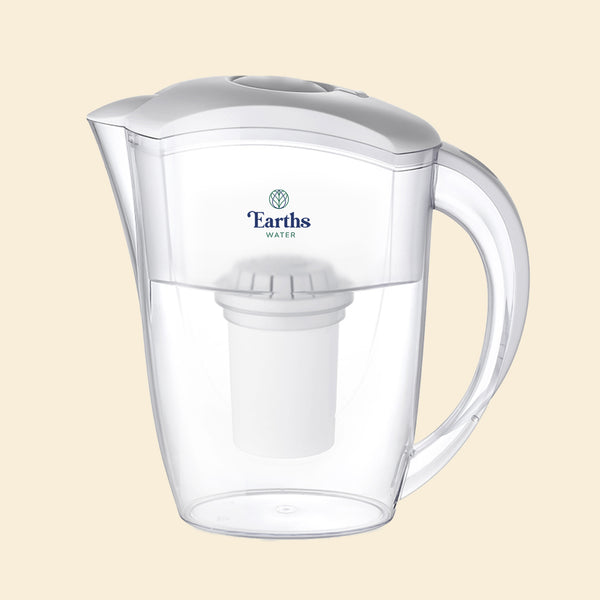
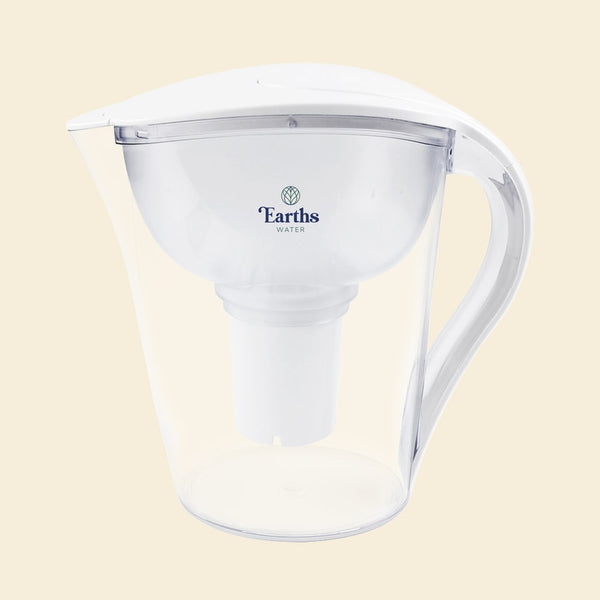
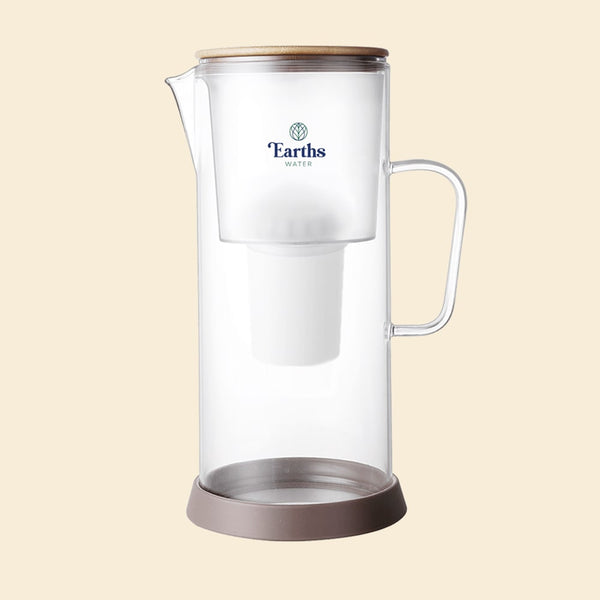
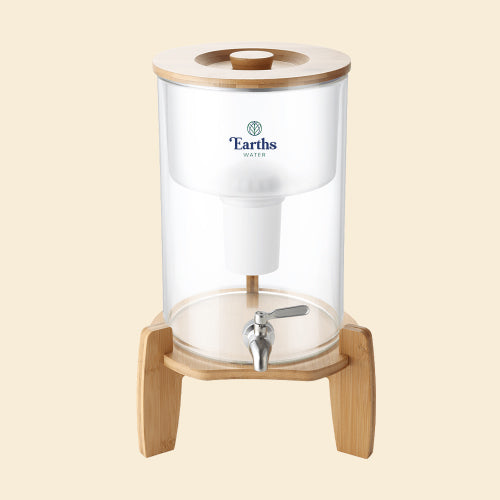
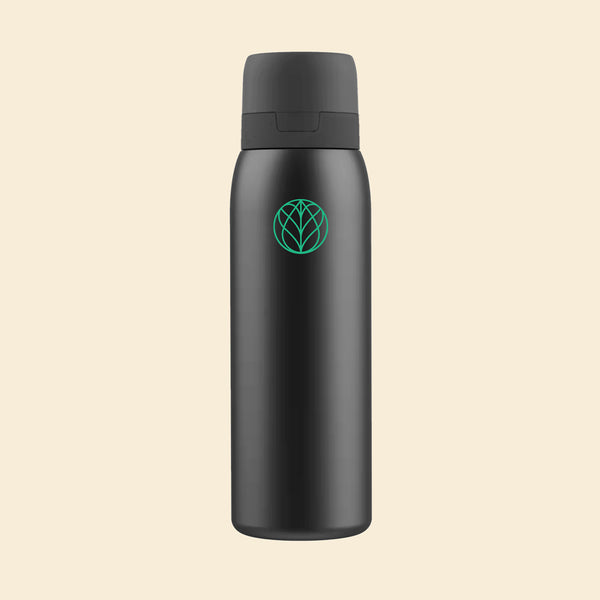
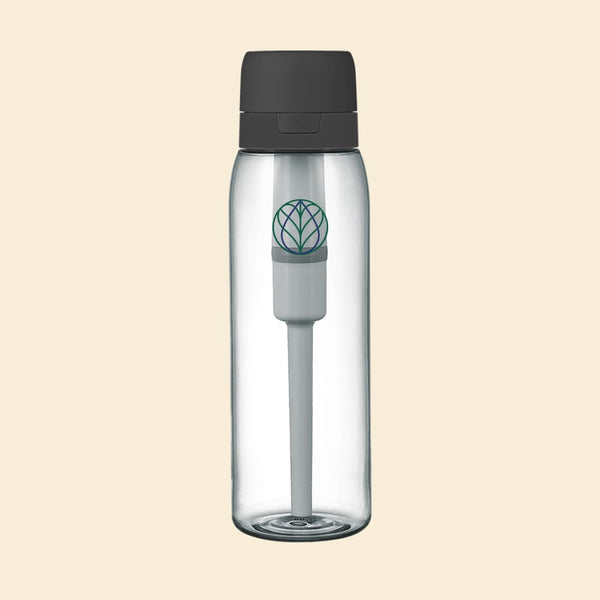
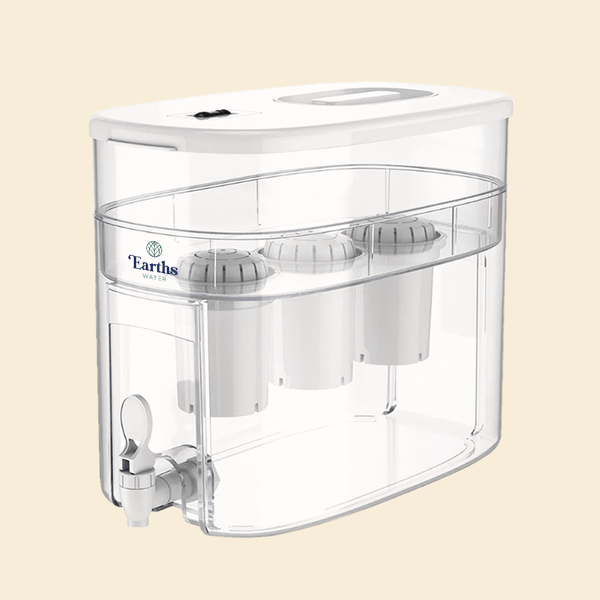
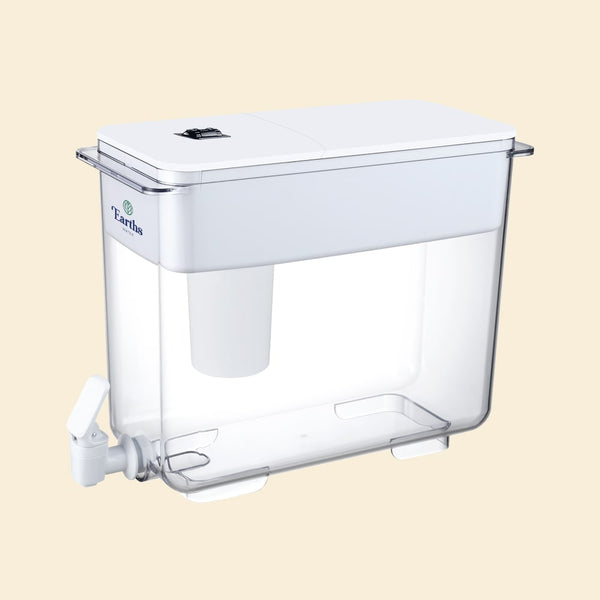
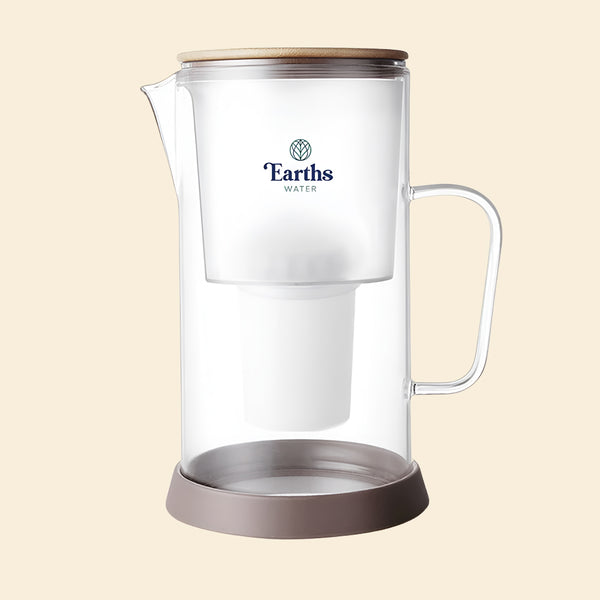
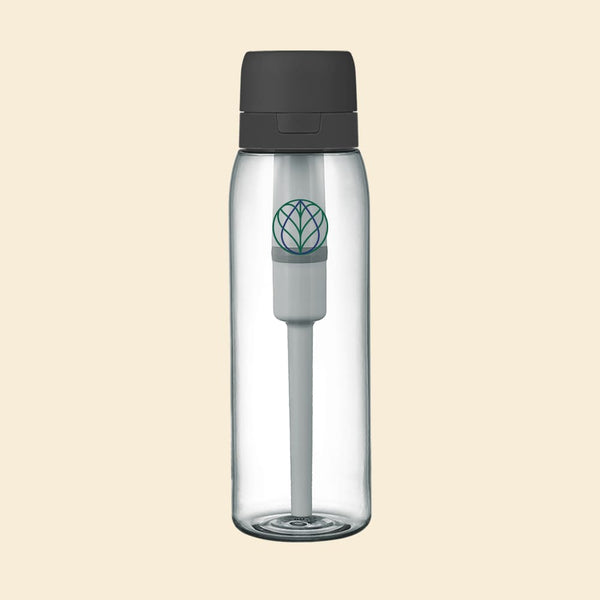
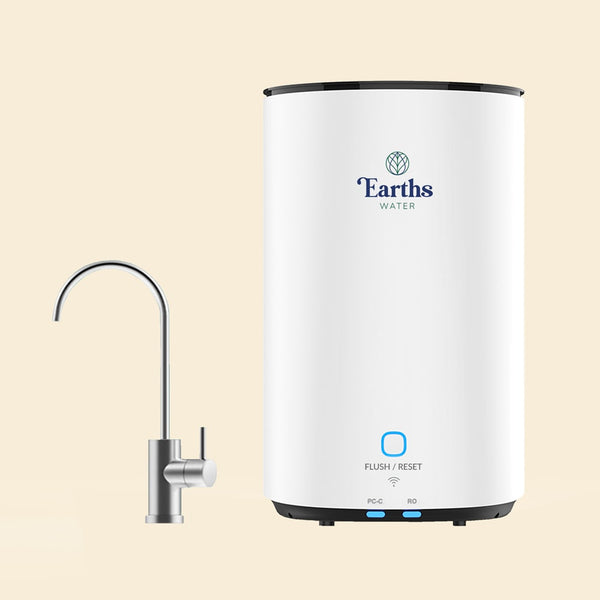
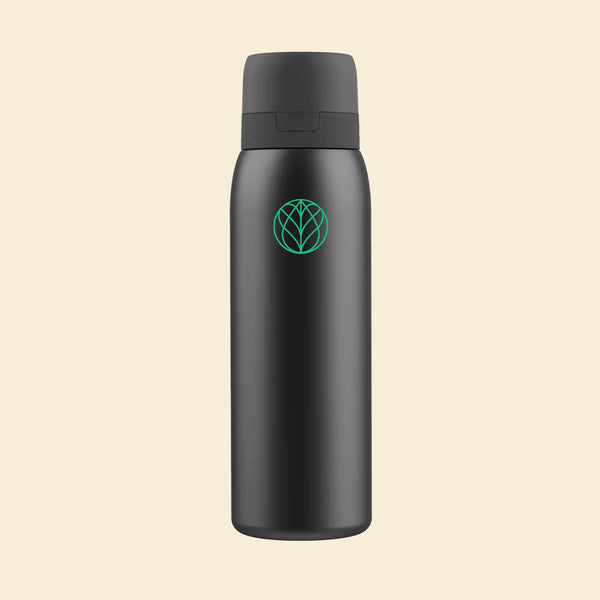
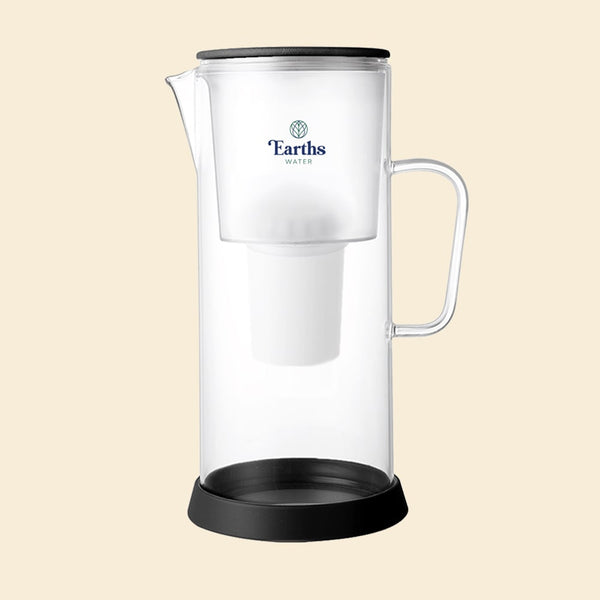
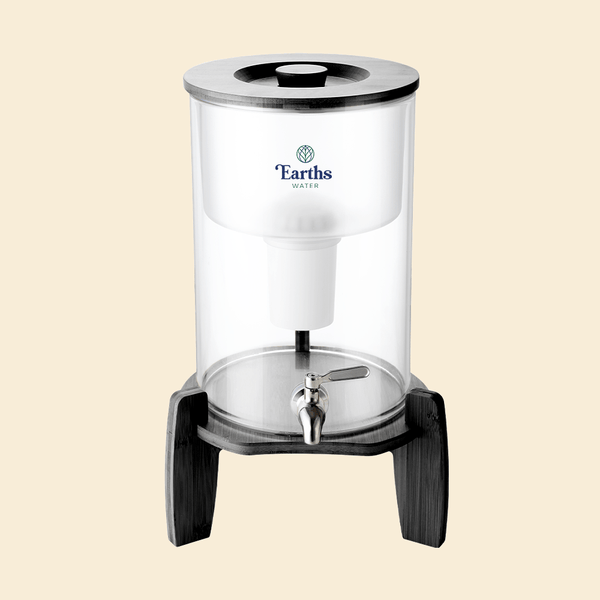
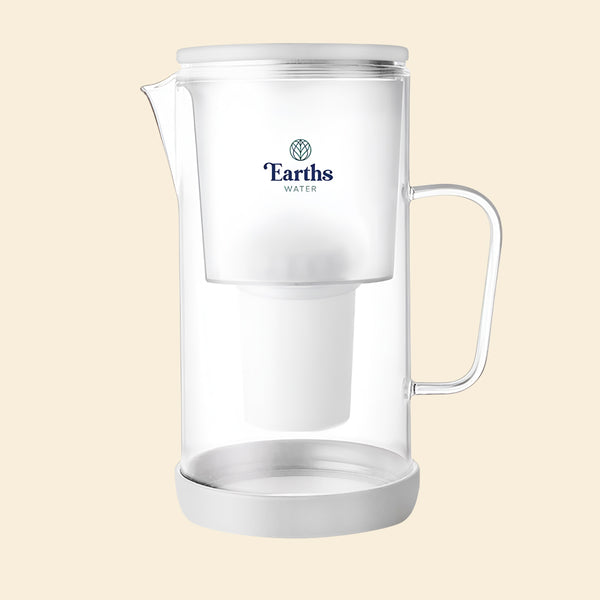
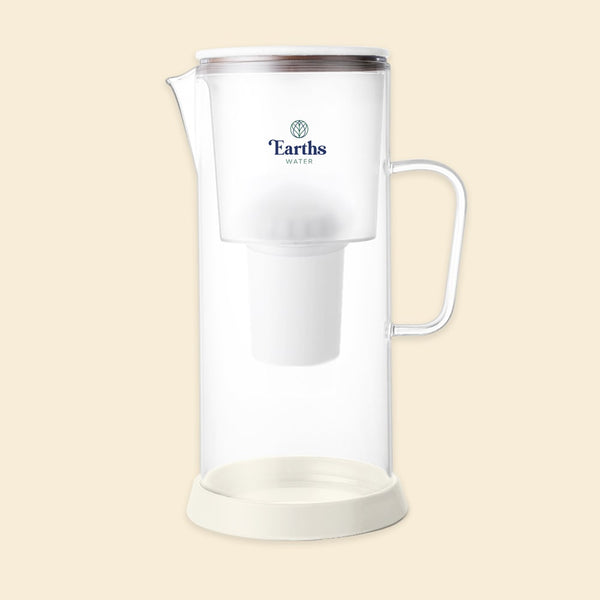
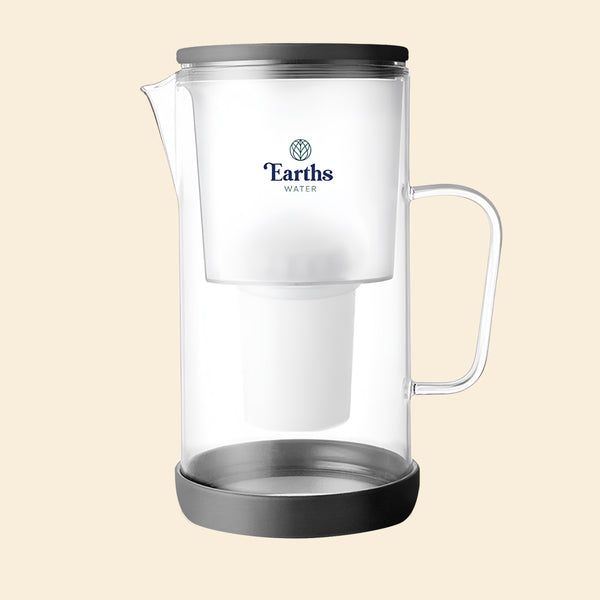
![9L Glass Benchtop Alkaline Water Filter - Eco Acacia [LIMITED EDITION]](http://earthswater.com.au/cdn/shop/files/ACACIA-BENCHTOP-FRONT-BEIGE_600x600.png?v=1743392740)
